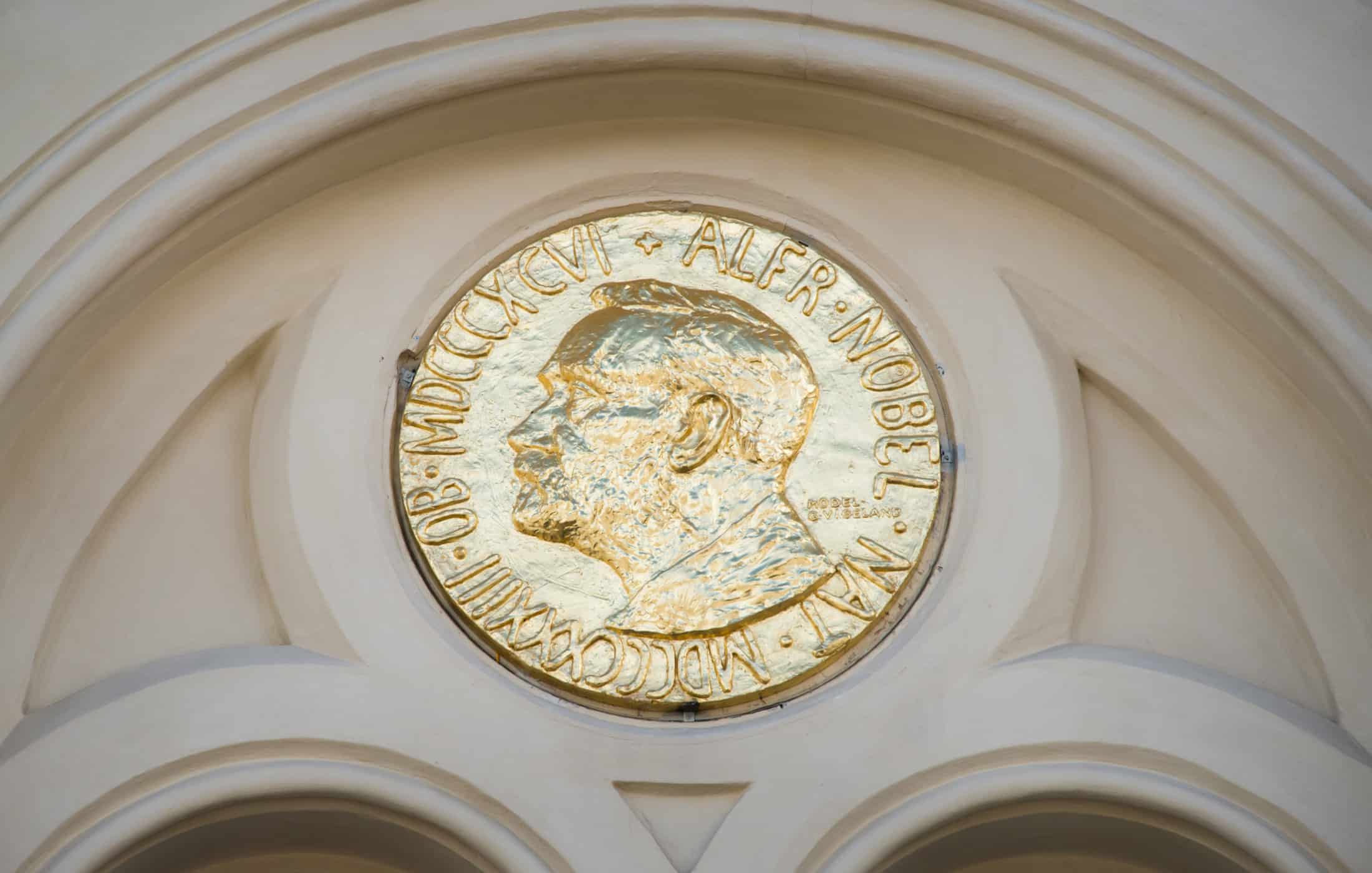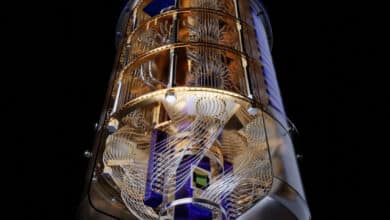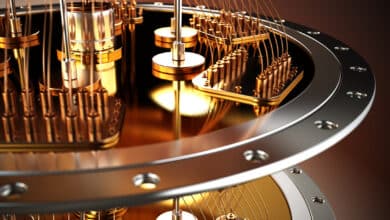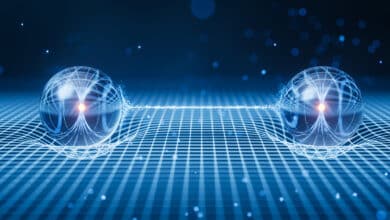Predicting Quantum Computing Winning 2025 Nobel Physics Prize

Table of Contents
Announcements of 2025 Nobel Prize winners start tomorrow. With announcements for Nobel Prize for Physics scheduled for Tuesday 7 October. Every autumn I indulge in a guilty pleasure: browsing speculative lists of Nobel Prize contenders and trying to guess who might pick up the world’s most coveted science prize.
Part of the fun is that the Nobel process is shrouded in secrecy. According to the Nobel Foundation, nominations for the physics prize are solicited by the Nobel Committee from a small cadre of selected scientists each September. The committee keeps the names of nominees and any related documentation sealed for fifty years, so even the nominees often do not know they were considered. After screening the nominations and consulting external experts, the committee recommends candidates to the Swedish Academy of Sciences, which makes the final decision in October and announces the winner the following week. That secrecy, combined with an appetite for scientific drama, makes prediction season fun.
How do people guess Nobel winners?
Given the cloak‐and‐dagger nature of the process, would‐be prognosticators resort to indirect measures. One popular approach is citation analysis. Clarivate (the company that owns Web of Science) releases an annual list of Citation Laureates, researchers whose papers have been cited thousands of times and whose work has had major scientific impact. Chemistry World describes the methodology: Clarivate selects papers that sit in the top 0.02 percent of the citation distribution over the past ten to thirty years and then uses qualitative filters such as novelty, societal impact and field rotation (avoiding awarding the same field repeatedly) to identify potential laureates. Roughly a quarter of Citation Laureates eventually win Nobels, so the list serves as a sort of odds board for bettors.
Predictors also look at gaps in the prize’s history. An analysis in Physics World shows that the Nobel Committee tries to avoid clustering prizes in the same subfield; for example, atomic and optical physics prizes tend to be spaced by five to ten years. Observing that no condensed‐matter prize has been awarded since 2016, the article speculates about awards for metamaterials (John Pendry, David Smith and Federico Capasso) or for cosmic inflation. Others note that because quantum information was recognized in the 2022 Nobel Prize for experiments on entangled photons, the committee might wait a few years before returning to similar territory.
Yet citation counts and field rotations have limits. The Nobel statutes restrict each prize to at most three laureates, and the committee’s definition of a “discovery” often emphasizes conceptual leaps rather than accumulated citations. Clarivate itself admits that its approach weights highly cited papers rather than novel insights. My own hunch is that, after a flurry of prizes for astrophysics and quantum optics, the time is ripe for the committee to honor the theoretical pioneers of quantum computing. But I might be biased…
Why quantum computing feels overdue
Quantum computing sits at the nexus of physics, computer science and mathematics. It promises to solve certain problems exponentially faster than classical computers, revolutionize cryptography, and enable simulations of complex molecules and materials. Many of the conceptual foundations were laid in the 1980s and early 1990s, and the practical realisation of quantum processors has accelerated over the past decade. Despite this, the Nobel committee has not yet recognized the theorists who defined what a quantum computer is, proved that it can outperform classical devices, and showed how to build one.
In 2023, Peter Shor, Charles Bennett, Gilles Brassard and David Deutsch shared the Breakthrough Prize in Fundamental Physics for “foundational work in the field of quantum information”. This international recognition raised expectations that the Nobel might follow.
Clarivate’s 2025 Citation Laureates list added two more names – David DiVincenzo and Daniel Loss – whose work has been pivotal in turning quantum computers from thought experiments into potential devices. If the Nobel committee chooses to acknowledge quantum computing in 2025, any combination of these pioneers could be in the running.
Below I introduce the main contenders from the quantum computing universe, sketching what they did and why I think their contributions fit the Nobel criteria of groundbreaking discovery or invention.
Peter Shor: breaking cryptography and correcting quantum errors
My personal favourite – and the candidate most often mentioned – is Peter Shor of MIT. In 1994 he stunned the scientific community by showing that a hypothetical quantum computer could factorize large numbers exponentially faster than any known classical algorithm. Shor’s algorithm undermined the security of most classical cryptographic systems because encryption schemes rely on the difficulty of factoring large integers.
He didn’t stop there. In 1995, when skeptics argued that quantum computers would be useless because any interaction with the environment would collapse their quantum states, Shor devised a method of quantum error correction that allows errors to be detected and fixed without disturbing the fragile qubits.
By providing both a killer app (breaking RSA) and a practical roadmap for error correction, Shor turned quantum computing from an academic curiosity into a serious research field. Many of today’s quantum algorithms and error‑correcting codes trace their lineage to his pioneering work, and he has continued to develop the theoretical foundations of quantum information.
Gilles Brassard and Charles Bennett: inventors of quantum cryptography
Gilles Brassard of the University of Montréal and Charles Bennett of IBM are often called the “fathers of quantum cryptography.” In the early 1980s they realized that quantum mechanics could guarantee secure communication in a way impossible for classical systems. Their 1984 protocol, known as BB84, uses single photons prepared in superposed polarization states to encode bits. Any attempt by an eavesdropper to measure the photons disturbs their state, which the legitimate parties can detect. The BB84 scheme therefore provides a method for generating secret keys that are secure even against quantum‐equipped adversaries.
The BBVA Foundation notes that this invention launched a new technology that is now commercially available and has inspired a flourishing field of quantum communications. Brassard and Bennett later extended their ideas to quantum teleportation, showing how an unknown quantum state can be transferred between distant particles using entanglement. Together these contributions transformed esoteric quantum principles into practical protocols and cemented the duo’s status as pioneers of quantum information science.
David Deutsch: defining the quantum computer
While Brassard and Bennett focused on secure communication, David Deutsch, a theoretical physicist at Oxford, grappled with a more fundamental question: What is a quantum computer? Deutsch formulated a quantum analogue of the Turing machine, proving that a universal quantum computer could simulate any physical system that obeys quantum mechanics. He further demonstrated that such a machine is equivalent to a network of relatively few quantum gates and designed the first quantum algorithm that performed a task faster than any classical counterpart.
These conceptual advances laid the foundation for the entire field. Without Deutsch’s model of computation and his early algorithmic examples, later breakthroughs such as Shor’s algorithm would have lacked a framework. Many see him as the intellectual architect of quantum computing.
David DiVincenzo and Daniel Loss: building qubits and defining criteria
Moving from theory to physical implementation, David DiVincenzo and Daniel Loss have played crucial roles in making quantum computers feasible. DiVincenzo, formerly of IBM and RWTH Aachen, articulated a set of five criteria that any physical system must meet to serve as a quantum computer. These include well‑defined qubits, long coherence times, universal gate sets, the ability to initialize and read out qubits, and scalability. These “DiVincenzo criteria” have guided experimentalists for decades.
Moreover, DiVincenzo and Loss proposed using electron spins in quantum dots as qubits. According to HPCwire, they showed that trapping electrons in semiconductor nanostructures allows precise control and measurement of their spin states, which can encode quantum information. This idea of spin qubits is now a leading platform in quantum hardware research. The King Faisal Prize citation for Daniel Loss highlights his pioneering work on spin dynamics and coherence in quantum dots and notes that the spin‐qubit concept has inspired major experimental programs and opened the door to spintronic quantum computers. Given that hardware development is essential for any practical quantum computer, recognizing DiVincenzo and Loss would honor the engineering dimension of the field.
Why not metamaterials or cosmology?
Of course, metamaterials and cosmic inflation remain strong contenders. Physics World names John Pendry, David Smith and Federico Capasso for developing transformation optics and invisibility cloaks, and points out that condensed‐matter physics hasn’t seen a Nobel since 2016. Meanwhile, theoretical cosmologists Alan Guth and Andrei Linde could be honoured for the theory of cosmic inflation.
I find these achievements fascinating, but they don’t ignite my imagination the way quantum computing does. Invisibility cloaks are cool, but a quantum computer that can crack encryption and simulate molecules could upend entire industries. Inflation theory is elegant, yet it sits within the conventional domain of cosmology prizes.
Quantum computing, by contrast, crosses disciplinary boundaries and promises a new paradigm for computation, secure communication and material design.
My prediction and personal bias
So who will win? The cautious answer is that nobody outside the Swedish Academy really knows. The committee could surprise everyone with a prize in nuclear physics or materials science. Yet I feel that 2025 is the year quantum computing finally gets its Nobel due. Here is my speculative ranking:
- Peter Shor – His factoring and error‑correction algorithms transformed quantum computing from an intellectual curiosity into a research priority. Without Shor’s work there would be no urgency to build quantum hardware.
- Gilles Brassard & Charles Bennett – Their invention of quantum cryptography (BB84) and quantum teleportation pioneered practical applications and remain foundational.
- David Deutsch – Defined the universal quantum computer and showed it could outperform classical machines.
- David DiVincenzo & Daniel Loss – Proposed the spin‑qubit platform and established the criteria for building quantum computers.
Only three laureates can share a Nobel, so a likely combination might be Shor, Bennett and Brassard (recognizing computation and cryptography), or Shor, Deutsch and Bennett/Brassard (focusing on the theoretical foundations). DiVincenzo and Loss might have to wait, though their Citation Laureate status indicates that they are on the committee’s radar.
Beyond the rational analysis, there is also the personal dimension: Shor’s algorithm defined my career – because of it I was tasked in 2001 to evaluate the real risk of quantum code breaking. And since then I’ve been working at the intersection of cybersecurity and quantum computing. The idea that a quantum machine could crack cryptography and model molecules in ways classical computers cannot felt like science fiction. I remember scribbling amplitudes and phase factors late into the night, trying to understand how interference patterns could encode number theory. Those moments of wonder are why I root for Shor and his colleagues.
A Nobel Prize for quantum computing would not only reward decades of visionary work but also signal to the world that quantum information science has matured from theory into technology.
Predicting the Nobel Prize is a fool’s errand, but it is an enjoyable one. Whether or not the Swedish Academy agrees with me in 2025, the impact of their work is indisputable. As quantum processors inch toward error‐corrected, scalable machines, the case for honoring their architects becomes ever stronger. I, for one, will be glued to the Nobel announcement, hoping to see the quantum revolution get its golden stamp of approval.
Quantum Upside & Quantum Risk - Handled
My company - Applied Quantum - helps governments, enterprises, and investors prepare for both the upside and the risk of quantum technologies. We deliver concise board and investor briefings; demystify quantum computing, sensing, and communications; craft national and corporate strategies to capture advantage; and turn plans into delivery. We help you mitigate the quantum risk by executing crypto‑inventory, crypto‑agility implementation, PQC migration, and broader defenses against the quantum threat. We run vendor due diligence, proof‑of‑value pilots, standards and policy alignment, workforce training, and procurement support, then oversee implementation across your organization. Contact me if you want help.



